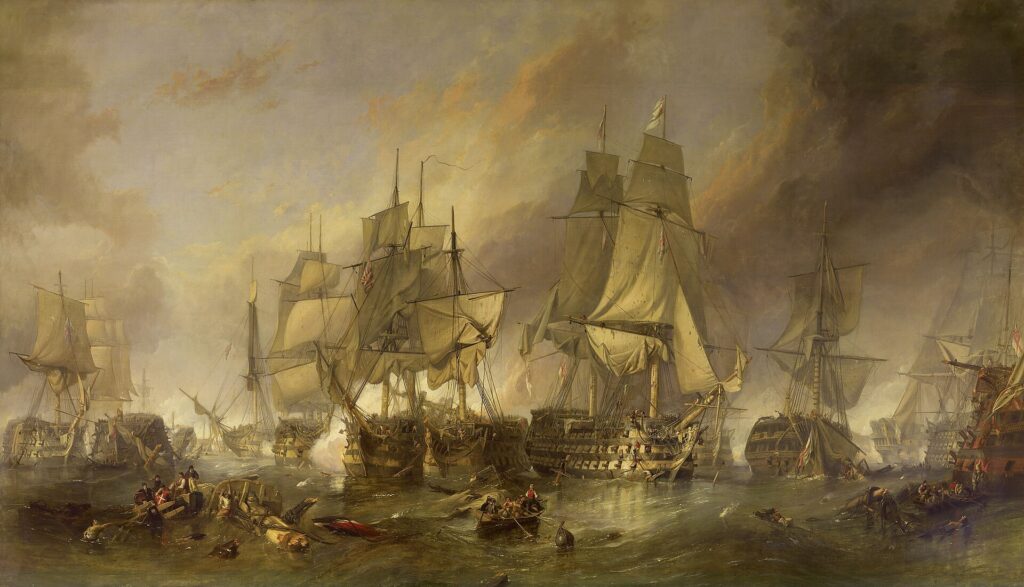
A REVIEW of the Trafalgar Dinner held at RDYC held on 14th November 2023 by member Jude Brooks
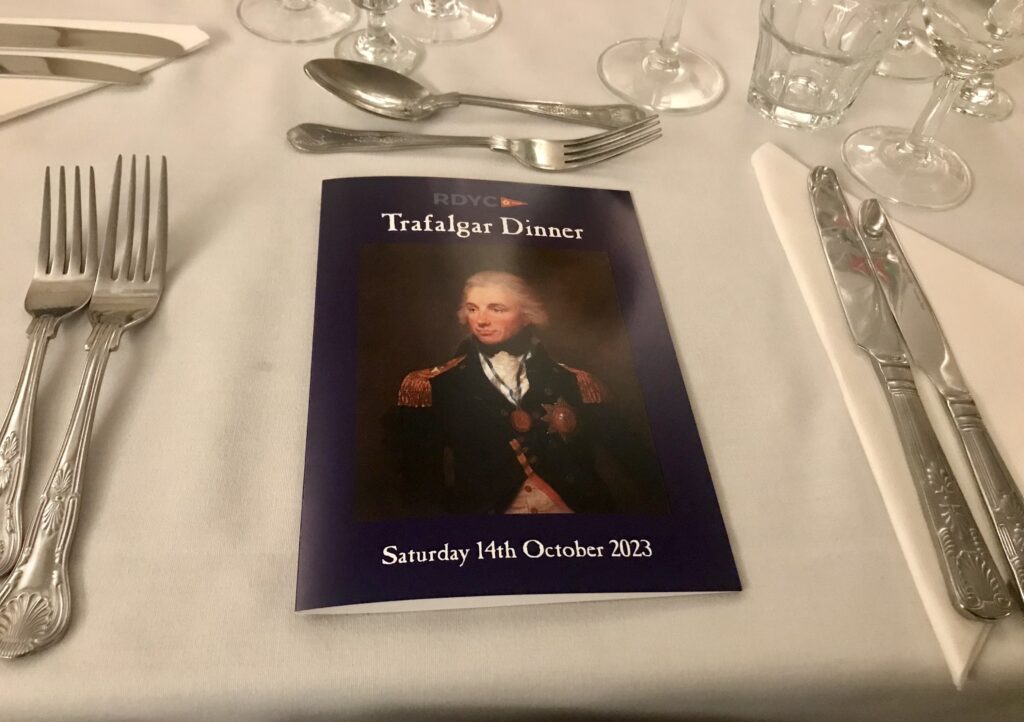
As a reason to celebrate with dinner, Nelson’s renowned Battle of Trafalgar was definitely worth getting dressed up for. Celebrated at RDYC, a week before the historical date of Saturday 21 October 218 years after what is considered to be the most famous battle in British naval history.
Our mess for dinner that evening was the comfortably safe Quarter Deck – and may we never take this safety for granted.
Dinner was served and the starter was a visual delight.
The citrus marinated cured salmon was a bright and beautiful orange. A splendid fishy dishy to commence the feast to fête this battle fought and won on the high seas. Avocado purée was earthy and fresh; yet silky and endlessly full of vibrant vitamins. Pink grapefruit added the essential scurvy-busting zing, along with pea-shoots that are always more than frivolous plate-dressing in my recipe book. Every inch, graceful greenery. The ship’s cook would have been pleased and was perfectly planned by our own Club Purser.
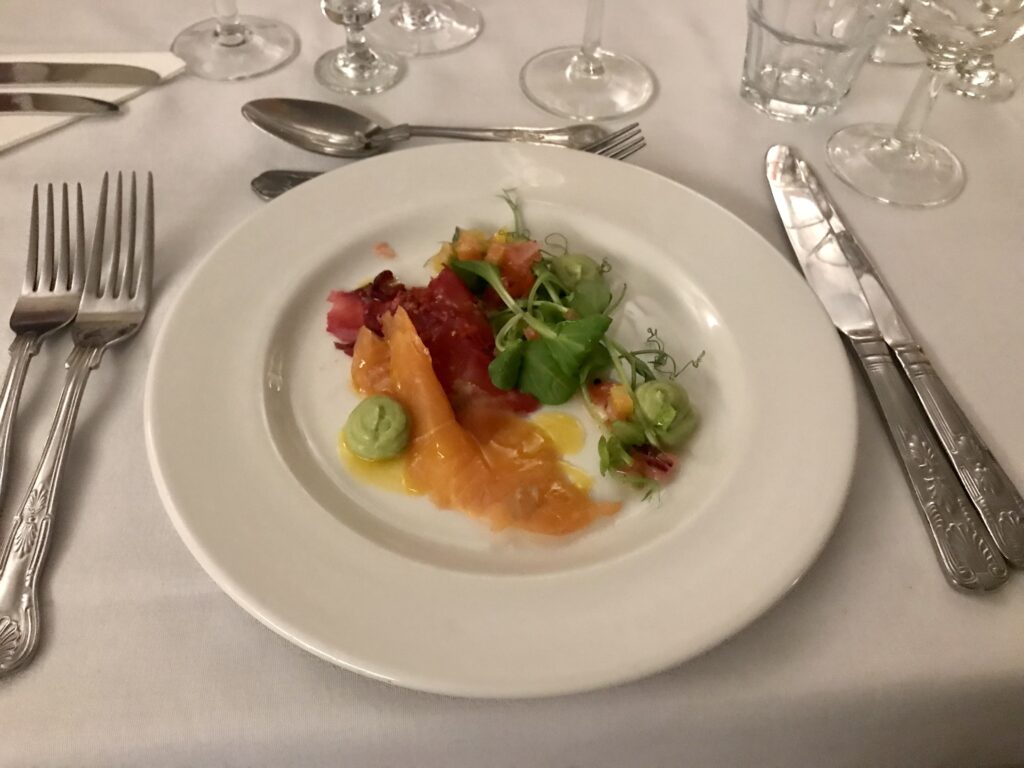
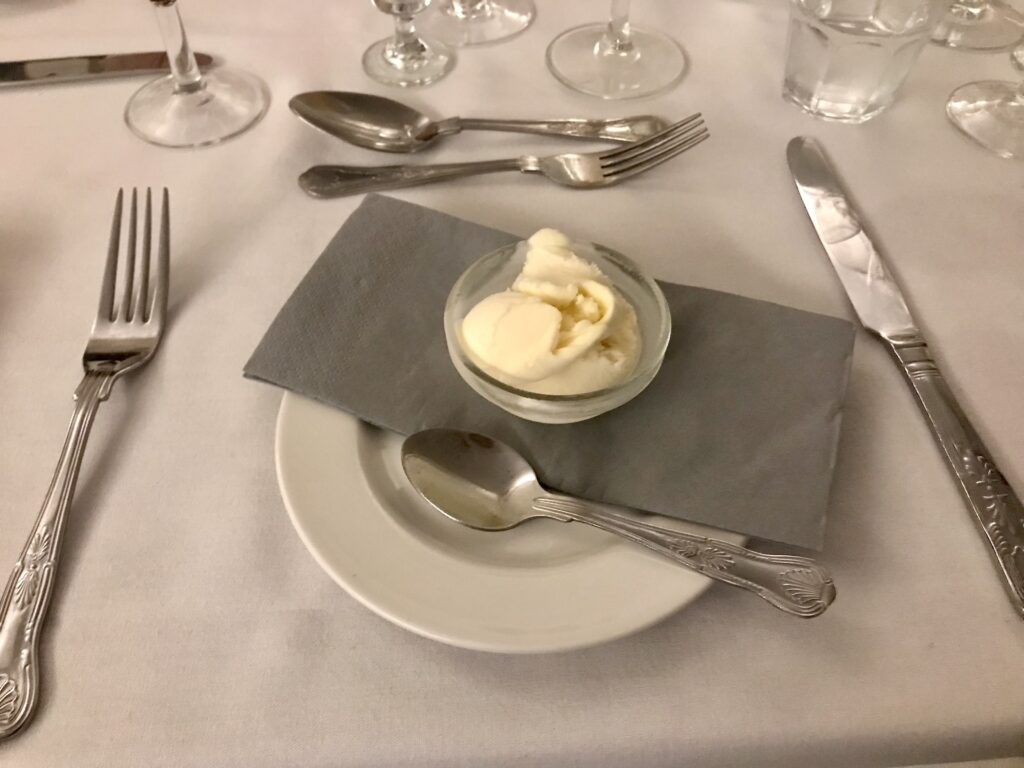
Taste buds enlivened; the mango sorbet was a welcome palate refresher. Creamy, but smooth and satisfying with a wink to a tropical, joyful and battle-free sunny paradise. A preface to the carnivorous admiral-worthy next course.
Slices of rare, tender topside of beef was a splendid main course to honour Nelson’s naval triumph. More greenery with a pea purée adding a vivid greenness to the dish; whilst the roast garlic parsnips contrasted with bite and substance. The gorgeously-cooked dauphinois potato was the carby treat, giving vital vigour for us diners. Layers of sliced potatoes imbued with cream and garlic and slow cooked – without a care in the world. Roasted red onion petals were melt-in-the-mouth delicious, doused by the port wine gravy that kept afloat the carrots, cauliflower, green beans, broccoli and sweetcorn. A reminder of land and sea compatriots.
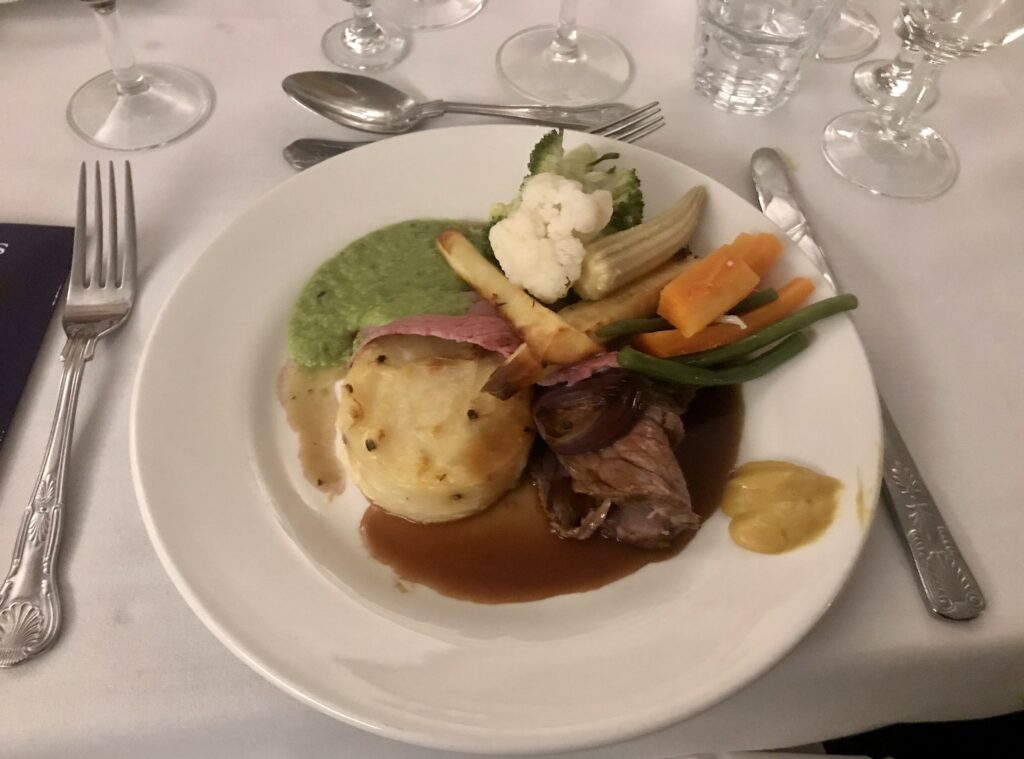
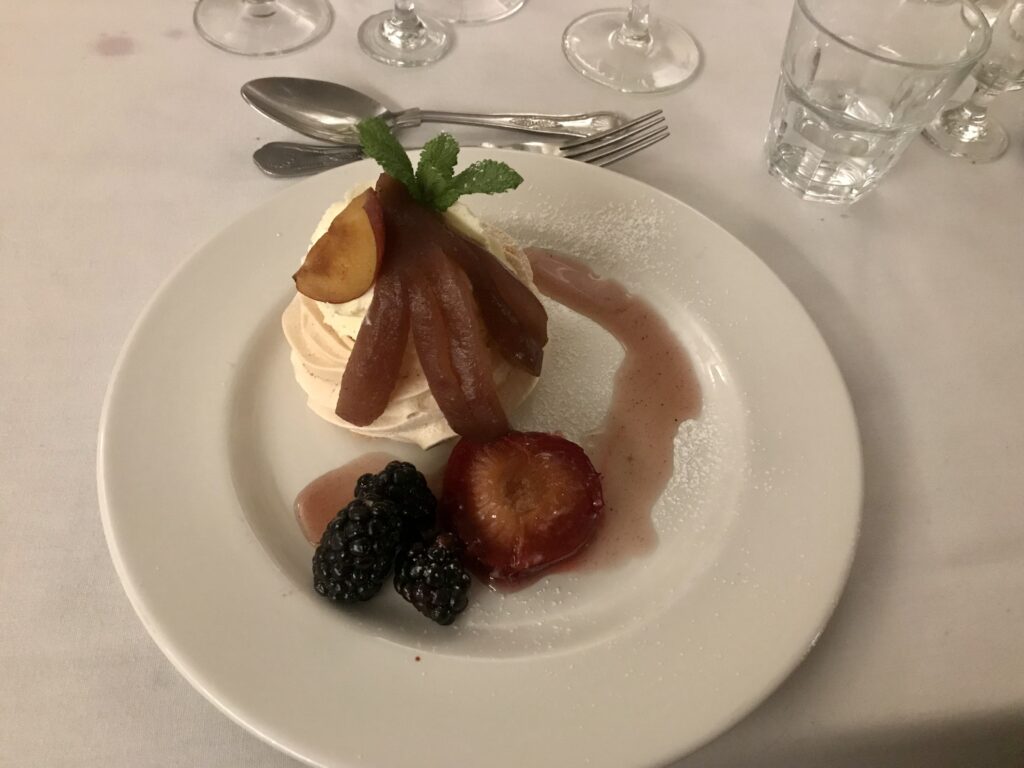
Pudding was almost regal in its stately splendour. A meringue nest baked to that perfect blend of sweet crunch and mallow stickiness, adorned with whipped cream and poached pear; plus, purple partners, plums and blackberries, as a comforting nod to autumn. Fresh food in its mellow fruitfulness.
In the same way that meals would have been a highlight on board for the crew, the cheese was one of the high points for me. There’s something about a platter of cheese, tangy chutney and crackers or bread that puts the world to rights. And looking outwards to the world battles of today, if only life were as simple as a platter of cheese.
To the toasts.
The first by our Commodore, Colin Bower to toast His Majesty the King.
“The King!” (See, we are getting used to it, whilst still missing our beloved Queen).
Next, a toast to our late Admiral, His Royal Highness the Duke of Edinburgh.
Also sadly missed.
Before turning to our esteemed guest speaker, Captain Sarah Oakley RN BRNC, in post across the river at the Britannia Royal Naval College since 2020, and whose career we were to discover was longer than her speech that evening.
It was heartening to hear Captain Sarah appreciate her welcome to RDYC and to celebrate the relationship between Dartmouth and Kingswear and the Naval College, testifying to a co-existing affection since the first recorded meeting 157 years ago in 1866, and with humbling hopes to co-exist for the next 157 years.
Here, here!
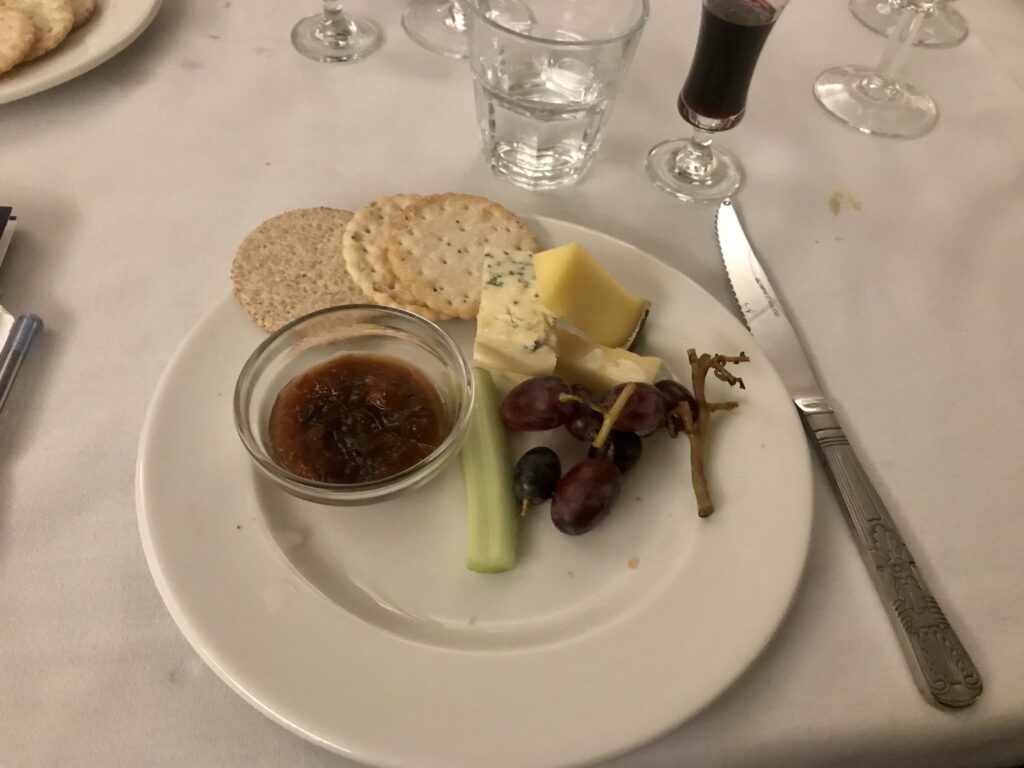
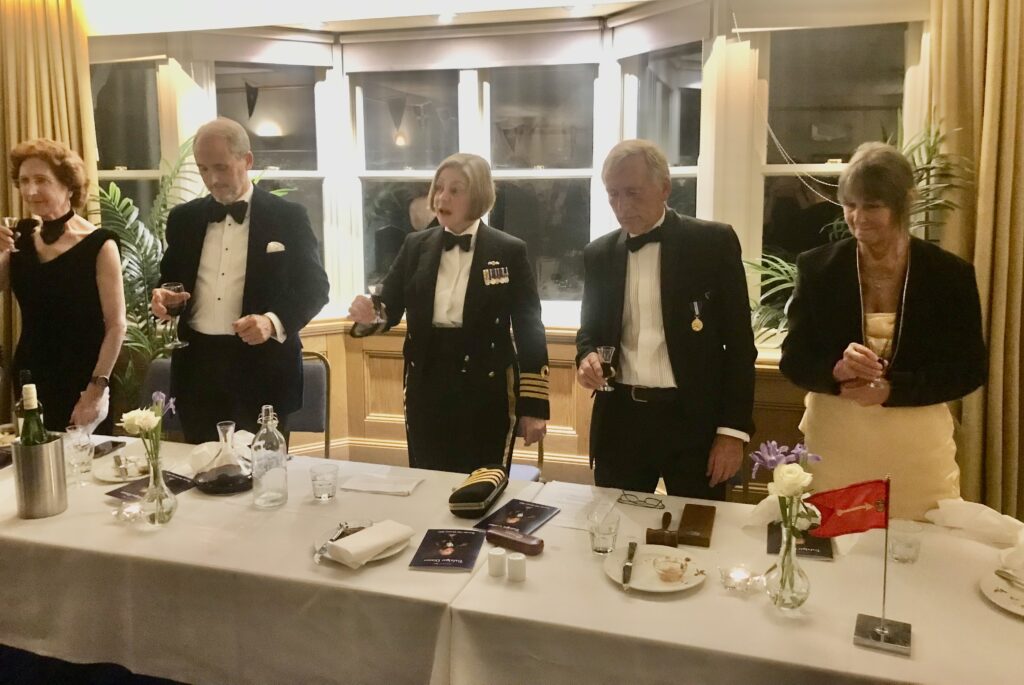
But back to the events of the Battle of Trafalgar and the spirit of the occasion.
Fought between the British Royal Navy and the combined fleets of France and Spain, the Battle of Trafalgar took place during the Napoleonic Wars, as Napoleon Bonaparte and his armies sought to conquer Europe.
On the battle seas of Cape Trafalgar in Spain (hence the name), between Cádiz and the Strait of Gibraltar, our hero, Admiral Horatio Nelson found himself to be outnumbered. 33 French and Spanish ships under Admiral Pierre de Villeneuve fought his British fleet of 27 ships. Nelson took the brave decision to sail into the heart of the enemy Franco-Spanish fleets and to the surprise of them all, destroyed them. No British boats were lost, but sadly, 1500 sailors gave their lives in battle, including Nelson himself who died assured of his victory. In the words of Shakespeare’s witches, “When the battle’s lost and won.”
Reflecting on the Trafalgar celebrations, Captain Sarah’s talk turned to camaraderie, sailing skills and sacrifice and the Royal Navy’s love of tradition – as happily prompted, we diligently remembered to pass the port to the left.
But above all, she reminded us, if you do not reflect on why tradition is important, it can easily lose its meaning and without upholding these cherished traditions, we risk losing them. It was this sense of belonging and collective camaraderie that added meaning and momentum to the Trafalgar Dinner, delightfully demonstrated by my fellow RDYC members gathered together.
Dipping her toes into questioning another tradition close to our hearts at RDYC, Captain Sarah asked why we still sail.
Lovely to be reminded of the wind in our sails, as this year’s summer feels long gone behind us and the next a while ahead of us, on these short wintry evenings.
We agreed whole-heartedly with a shared love of the open water. And as an island nation, we love to free ourselves from the shackles of life. Sailing and the sea and the water are in our blood, thanks to our forbearers; and it is part of our UK history that we still go down to the sea to take to the water.
But at this time of remembrance, we must remember the ultimate sacrifice and the conflicts of today. We must remember those who gave their lives in the battles of the sea, not least, the Battle of Trafalgar and for Nelson, his Trafalgar forever shattered Napoleon’s plans to invade England.
This year’s Trafalgar Dinner was a wonderful, if perhaps wistful evening for me; gratefully celebrated with good food and company and with thanks to Captain Sarah Oakley for prompting us to be true to tradition. We also thank Mark and the team for cooking up a fine feast and for Finn and the team for looking after us and for making us all feel as if we were on the Captain’s top table.
By Jude Brooks